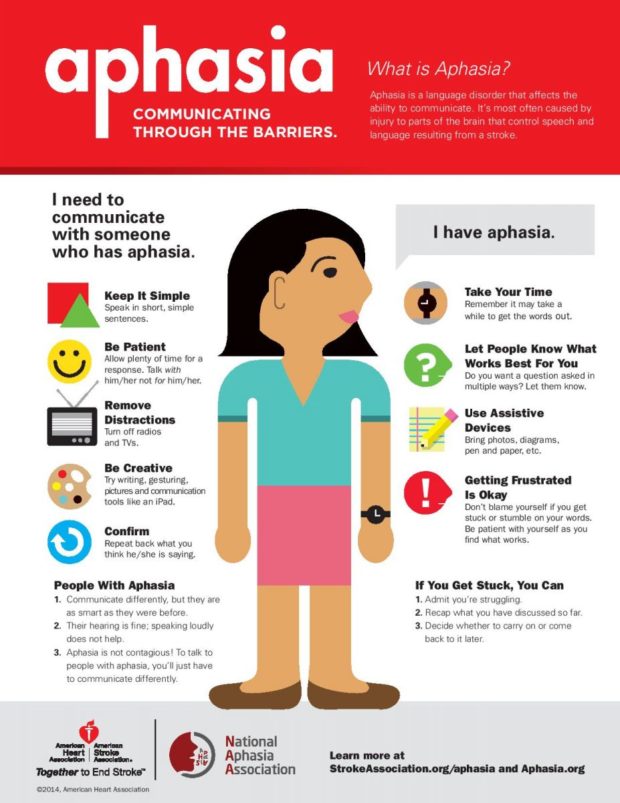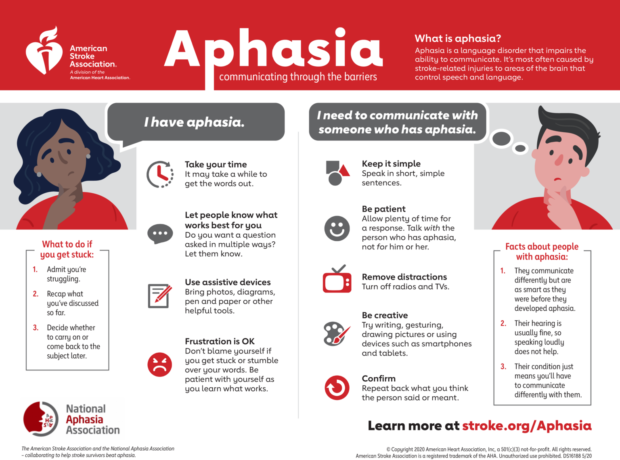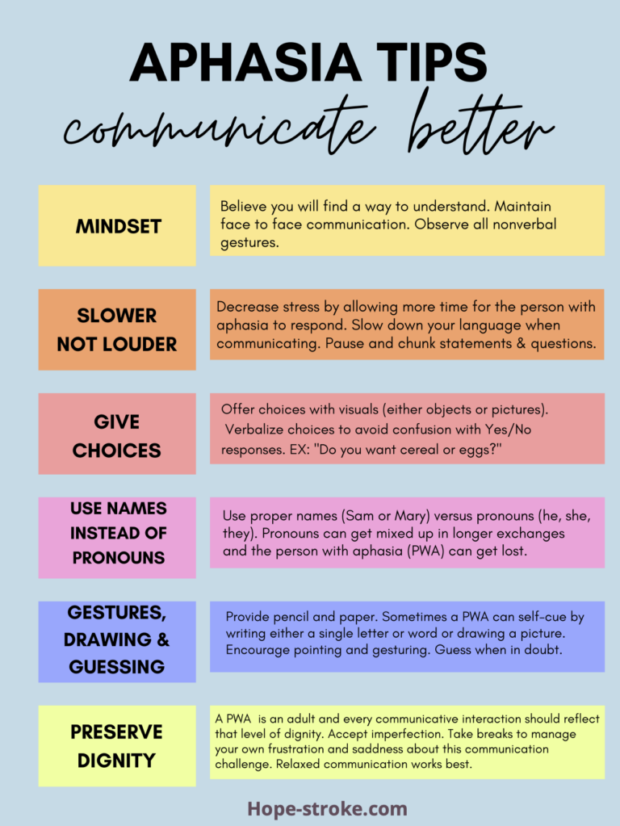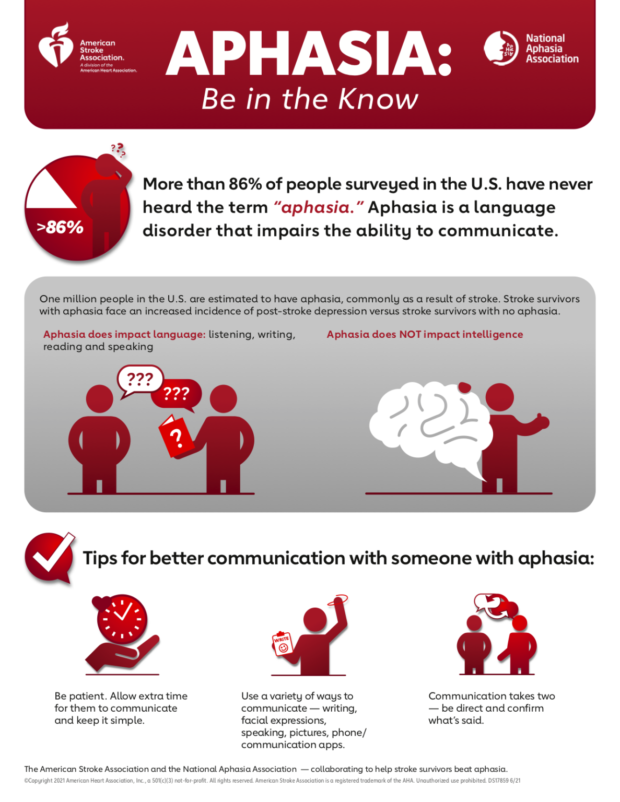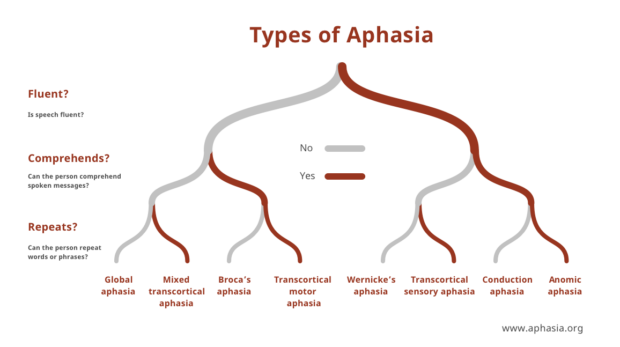Aphasia: Bruce Willis’ condition common but barely known
MANILA, Philippines—While recent news of the retirement of Hollywood star Bruce Willis left fans and his longtime friends shocked and sad, it has brought awareness about a little-known—but common—neurological condition.
On March 31, the family of Willis—propelled to stardom by his role in the “Die Hard” franchise as well as his long list of movies—announced that the actor will step away from the spotlight.
READ: Bruce Willis to retire from acting after aphasia diagnosis
The announcement about his retirement, however, has shone the light on aphasia—a disorder that impairs a person’s ability to communicate.
Understanding aphasia
According to the actor’s family, the 67-year-old Willis has been recently diagnosed with aphasia, “which is impacting his cognitive abilities.”
Aphasia, according to the American Speech-Language-Hearing Association (ASHA), is a language disorder caused by damage to the specific area of the brain that controls language, expression, and comprehension.
The National Aphasia Association (NAA) in the United States said that aphasia may usually occur after a stroke or traumatic injury to the brain. It may also gradually arise due to brain tumors, infections, or degenerative diseases.
The National Health Service (NHS) in the UK explained that aphasia can occur “by itself or alongside other disorders, such as visual difficulties, mobility problems, limb weakness, and problems with memory or thinking skills.”
Aphasia causes difficulties in communicating effectively. It impacts a person’s speaking abilities, as well as the way they write and understand both spoken and written language.
However, NAA noted that aphasia affects everyone differently, adding that in some cases, patients may experience issues related to gestures and numbers.
“Aphasia can be so severe as to make communication with the patient almost impossible, or it can be very mild,” the NAA said.
“It may affect mainly a single aspect of language use, such as the ability to retrieve the names of objects, or the ability to put words together into sentences, or the ability to read,” it continued.
“More commonly, however, multiple aspects of communication are impaired, while some channels remain accessible for a limited exchange of information,” it added.
Despite the condition’s impacts, experts emphasized that it does not affect the intelligence of the person suffering from it.
Signs, types of aphasia
Aphasia and stroke, according to NAA, may occur suddenly. However, there are some warning signs to look out for, including:
- Sudden weakness or numbness on one side of the body
- Sudden changes in eyesight
- Sudden dizziness or trouble walking
- Sudden headache for no reason
- Sudden confusion or trouble talking and understanding
Mayo Clinic also noted that a person who might be suffering from aphasia might exhibit some symptoms such as:
- Speaking in short or incomplete sentences
- Saying incoherent sentences
- Speaking unrecognizable words
- Experiencing difficulties in understanding other people’s conversation
- Writing sentences that don’t make sense
- Substituting one word for another or one sound for another
Meanwhile, some experts—including those from Johns Hopkins Medicine—believed that the symptoms of aphasia may depend on which type a person has.
Some of the common types of aphasia, based on data by the NAA, include:
- Global aphasia: The most severe form of aphasia and is observed in patients who can produce few recognizable words and understand little or no spoken language. People with global aphasia can neither read nor write.
- Broca’s aphasia (“non-fluent aphasia): “In this form of aphasia, speech output is severely reduced and is limited mainly to short utterances of less than four words,” the NAA explained.
“Vocabulary access is limited and the formation of sounds by persons with Broca’s aphasia is often laborious and clumsy,” it added.
- Mixed non-fluent aphasia: People with this type of aphasia have space and effortful speech, similar to those with severe Broca’s aphasia.
However, those who have this type “remain limited in their comprehension of speech and do not read or write beyond an elementary level.”
- Wernicke’s aphasia (“fluent aphasia): This type is applied in patients who have a severely impaired ability to read, write, and grasp the meaning of spoken words.
However, people with Wernicke’s aphasia experience ease of producing connected speech, despite using irrelevant and incoherent words.
- Anomic aphasia: People with anomic aphasia—though they can understand speech well and, in most cases, can read adequately—often find it difficult to search for words when writing or speaking.
“This term is applied to persons who are left with a persistent inability to supply the words for the very things they want to talk about-particularly the significant nouns and verbs,” the NAA detailed.
“As a result their speech, while fluent in grammatical form and output is full of vague circumlocutions and expressions of frustration.”
- Primary Progressive Aphasia (PPA): The NAA explained that PPA is a neurological syndrome in which language capabilities become slowly and progressively impaired.
PPA, unlike other forms of aphasia, is caused by neurodegenerative diseases such as Alzheimer’s Disease.
“Although the first symptoms are problems with speech and language, other problems associated with the underlying disease, such as memory loss, often occur later.”
Complications, recovery
Due to its nature, aphasia may affect a person’s job, relationships, and day-to-day function.
The disorder, which causes language barriers, can also lead to isolation, anxiety, and depression in some cases.
While the NAA said there is no medical cure yet for aphasia, and that problems in communicating can last a long time, most people with aphasia see improvement over time—particularly if speech therapy is provided.
“People’s aphasia can be helped even 10 or more years after onset if they have access to appropriate intensive treatment,” the NAA said.
“New imaging studies show with time the brain can make new networks and heal,” it added.
According to Johns Hopkins Medicine, treatment for aphasia vary among health care providers and is based on:
- The patient’s age, overall health, and medical history;
- The cause and extent of the disorder;
- The patient’s tolerance for specific medicines, procedures, or therapies;
- The patient’s opinion or preference and motivation.
Methods such as speech-language therapy, nonverbal communication therapies, and group therapy for patients and their families can help improve the patient’s ability to communicate.
Connecting, communicating
Aphasia impacts a person’s ability to communicate effectively, but the ASHA listed some tips that can help families, friends, and other people to communicate better with someone who has aphasia.
Some of these include:
- Get the patient’s attention first before you start speaking.
- Maintain eye contact with them. Observe their body language and gestures.
- It is preferable to talk to them in a quiet place.
- Keep your voice at a normal level. You do not need to talk louder unless the patient ask you to.
- Keep your words simple but don’t “talk down” to them.
- Give them time to speak and try not to finish their sentences.
- Try using drawings, gestures, writing, and facial expressions.
- Allow them to make mistakes sometimes and let them try do things for themselves.
- Use short sentences and repeat key words that you want them to understand.
- Ask them “yes” and “no” questions.
Meanwhile, Johns Hopkins Medicine suggested to:
- Include the person with aphasia in conversations.
- Use a natural conversational matter t an adult level when talking with a person with aphasia.
- Don’t correct the person’s speech.
- Help the person become involved outside the home, such as through support groups
“Aphasia can be isolating. Imagine not being able to easily convey your thoughts to your friends and family. Imagine not being able to understand what they’re saying to you. But aphasia doesn’t have to be isolating,” the NAA said.
“In fact, it can go a long way for a person with aphasia to know that you’re trying to help them to communicate and remain part of the conversation,” it continued.
“Help friends and family understand that the old ways of communicating may not work, and they’ll need to adjust to keep the person part of the conversation.”
Lack of PH studies
In the US, at least 2,000,000 are diagnosed with aphasia, while in the UK there are at least 250,000 who have the condition.
In fact, the NAA found that more people have aphasia than other common conditions such as cerebral palsy, multiple sclerosis, Parkinson’s disease, or muscular dystrophy.
Still, in a 2016 national survey on aphasia awareness conducted in the US by the NAA, 84.5 percent of the respondents have never heard the term “aphasia.” Only 8.8 percent said they have heard of aphasia and were able to identify it as a language disorder.
In the Philippines, there is limited research done on aphasia, which makes it difficult to identify the incidence or prevalence of aphasia in the country, as well as the portion of the population who are “aphasia aware.”
TSB

